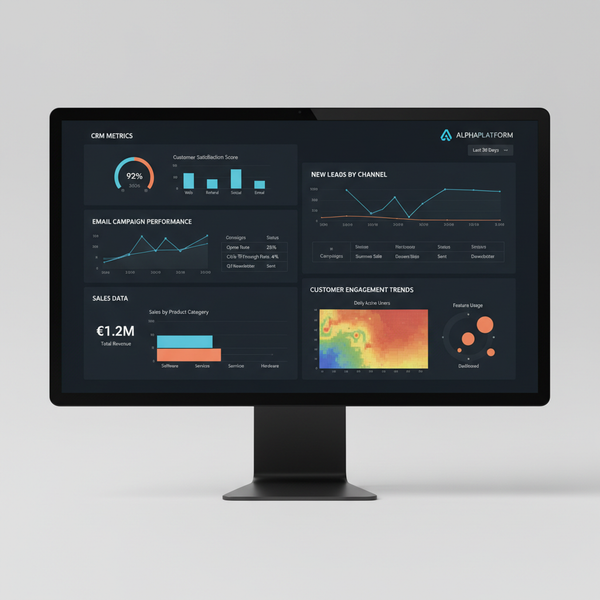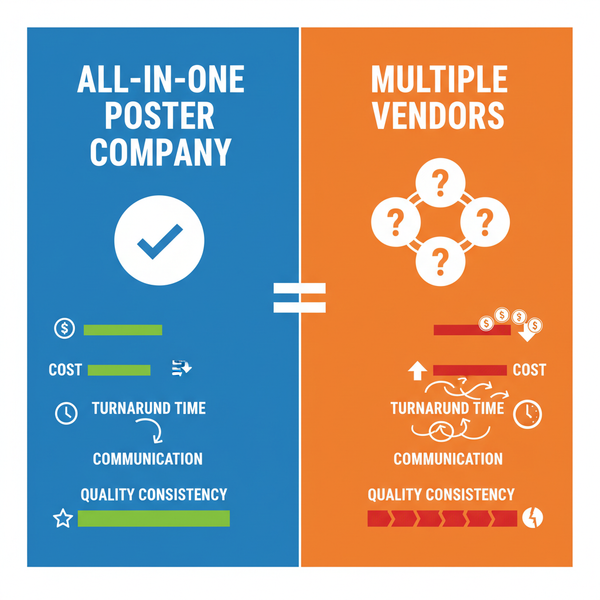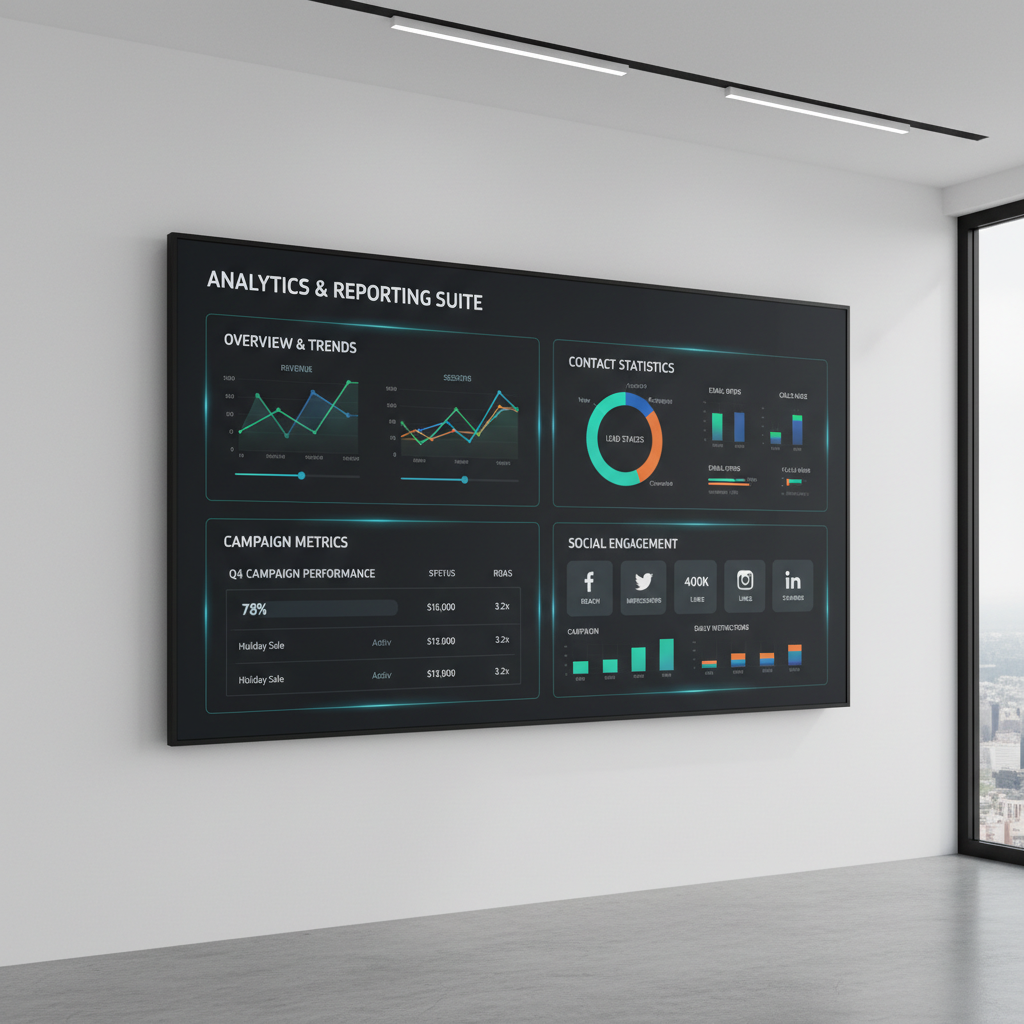AI Media Strategy for Digital Marketing Success
Learn how an AI media strategy enhances marketing with personalization, predictive analytics, automated content, and optimized ad targeting for higher ROI.
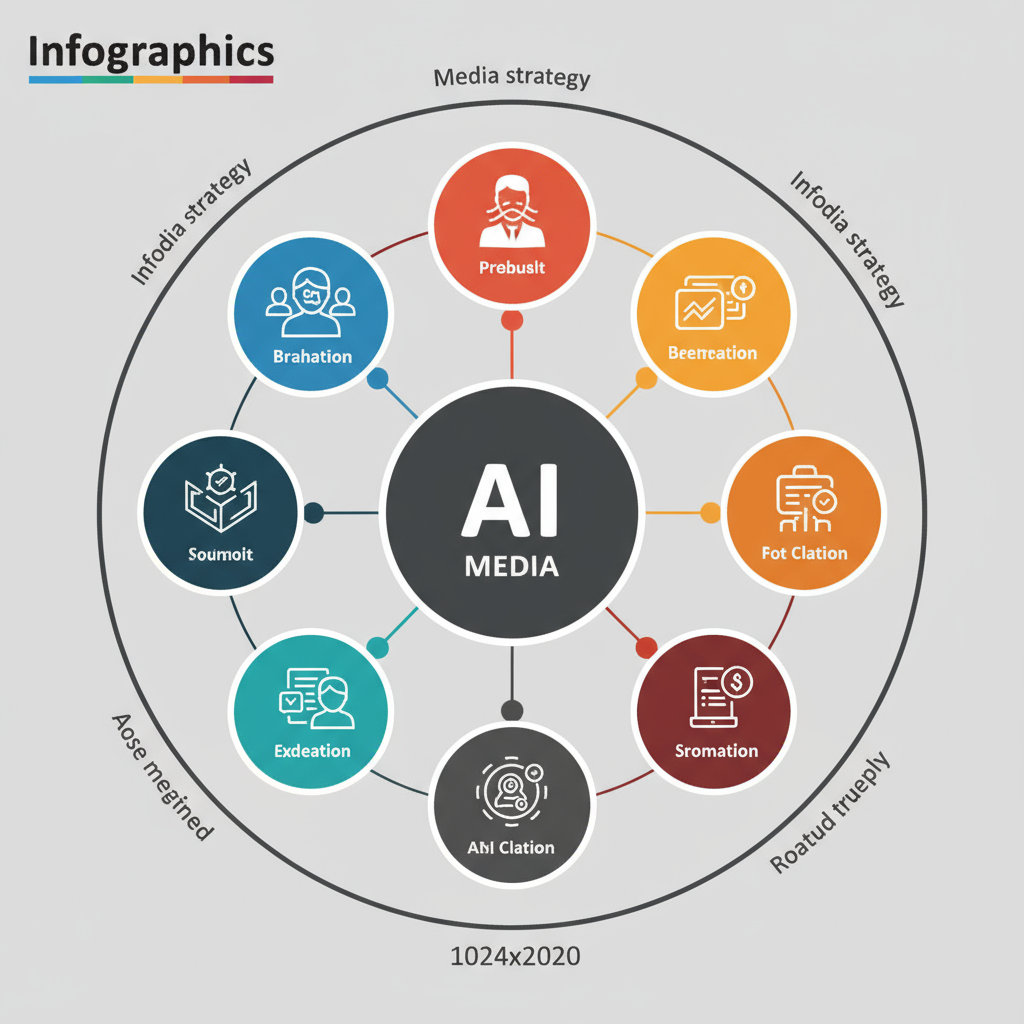
Introduction to AI in Media and Marketing
Artificial Intelligence (AI) is revolutionizing how brands connect with audiences across multiple digital touchpoints. From automated content creation to behavioral analytics, implementing an AI media strategy helps marketing teams work smarter, target more precisely, and deliver engaging, personalized experiences. Rather than replacing human creativity, AI enhances strategic decision-making, freeing marketers from repetitive tasks and opening new opportunities for innovation.

In today’s competitive, fast-paced digital environment, marketing success depends on three critical factors: understanding audience needs, producing relevant content at speed, and maximizing ROI with efficient resource allocation. AI technologies — such as machine learning, natural language processing, and predictive analytics — are now the driving force behind these capabilities.
---
Benefits of an AI-Driven Media Strategy
Adopting an AI media strategy offers multiple advantages that directly impact marketing performance and scalability.
1. Improved Efficiency
AI automates time-consuming tasks such as scheduling social media posts, producing reports, and analyzing metrics. Machine learning algorithms accelerate workflows and reduce time-to-market.
2. Enhanced Personalization
By leveraging real-time segmentation, AI tailors messages to highly specific audience clusters, improving customer engagement and conversion rates.
3. Increased ROI
AI refines targeting, prioritizes top-performing channels, and eliminates wasted ad spend to deliver better returns on marketing investments.
---
Understanding Audience Data Through AI Analytics
Audience insights form the backbone of any effective media strategy. AI-powered analytics go beyond traditional demographic parameters to uncover deep behavioral patterns.
Key Capabilities of AI Analytics
- Predictive Modeling: Forecast future actions using historical data.
- Sentiment Analysis: Identify customer emotions through reviews, comments, and feedback.
- Customer Segmentation: Cluster audiences by behaviors, interests, or purchase patterns.
By interpreting these insights, marketers can align actions with consumer intent to create more relevant and impactful campaigns.
---
Using AI for Content Creation
AI has transformed how marketing teams develop text, images, and videos—while maintaining brand voice and audience relevance.
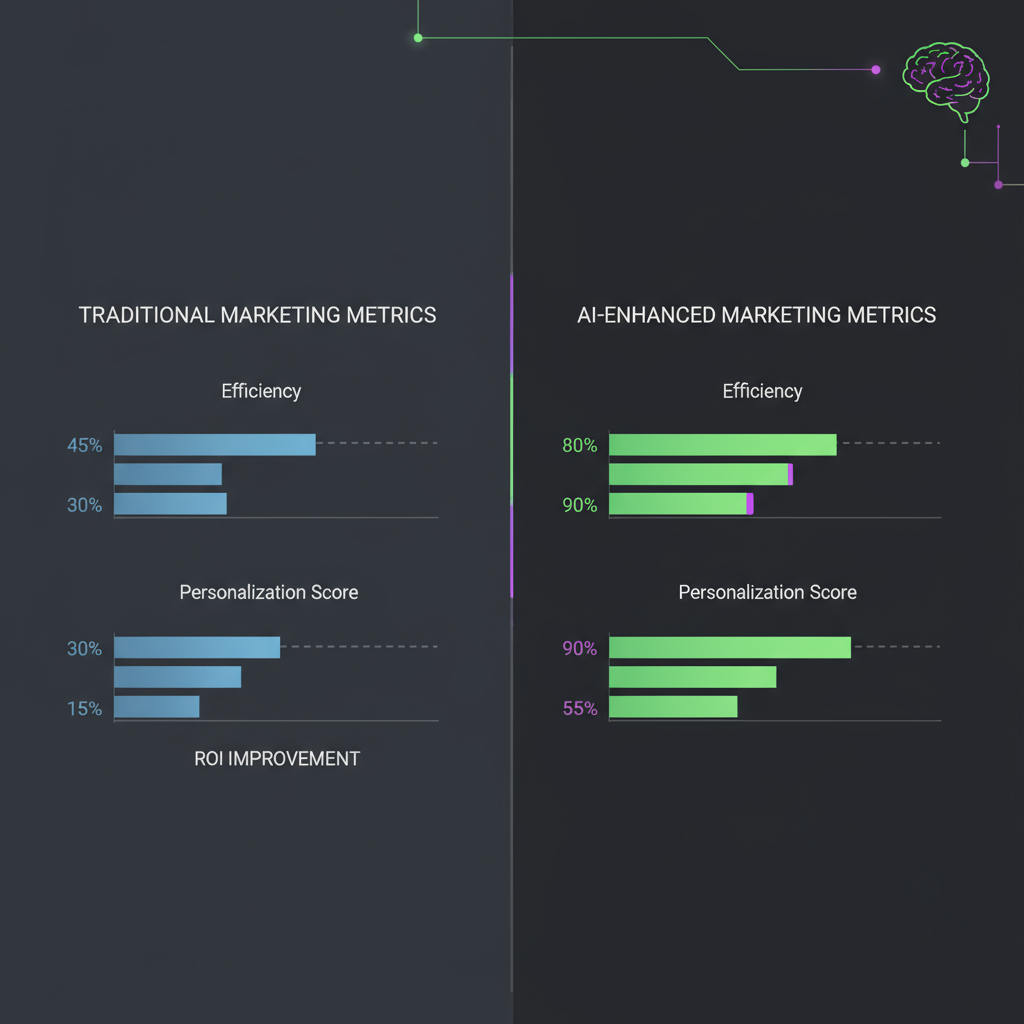
Text Generation
Natural Language Processing (NLP) can produce blog posts, ad copy, and product descriptions tailored for specific audience segments.
Example with Python's popular NLP library:
from transformers import pipeline
generator = pipeline("text-generation", model="gpt-2")
prompt = "Create a persuasive social media ad for a fitness program."
result = generator(prompt, max_length=50, num_return_sequences=1)
print(result[0]['generated_text'])Image Creation
AI-driven tools like DALL·E or Midjourney generate custom visuals in seconds, speeding up ideation for campaigns.
Video Editing
Platforms equipped with AI can automatically add captions, compile highlight reels, and create animation sequences, cutting costs and production time.
---
AI in Social Media Management and Scheduling
Managing a multi-channel social presence is complex. An AI media strategy streamlines campaign execution by automating:
- Content Scheduling: AI determines optimal post timing for each platform.
- Trend Monitoring: Detects relevant hashtags and emerging topics.
- Performance Prediction: Estimates engagement before publishing.
Consistent posting and responsive communication become easier to maintain, strengthening brand visibility.
---
AI-Powered Ad Targeting and Optimization
Digital advertising often represents a major budget line. AI boosts ad performance by enabling precision targeting and dynamic optimization.
| AI Feature | Benefits |
|---|---|
| Real-Time Bidding Optimization | Adjusts bids dynamically for higher ROI |
| Predictive Audience Targeting | Displays ads to users most likely to convert |
| Creative Testing Automation | Rapidly tests ad variations to identify top performers |
AI-driven ad management accelerates A/B testing and allows instant budget shifts toward high-impact creatives and audience segments.
---
Integrating AI Chatbots for Customer Engagement
Conversational AI tools such as chatbots enhance customer interaction by providing instant responses and recommendations.
Advantages
- Scalability: Manage hundreds of conversations concurrently.
- Consistency: Maintain a uniform tone and information accuracy.
- Insight Generation: Collect and analyze interaction data for strategic refinement.
By incorporating AI chatbots into your AI media strategy, brands cultivate deeper, continuous audience engagement.
---
Measuring Campaign Success with AI-Driven Insights
Campaign measurement is crucial for long-term success. AI analytics platforms not only track KPIs but interpret them into strategic adjustments.
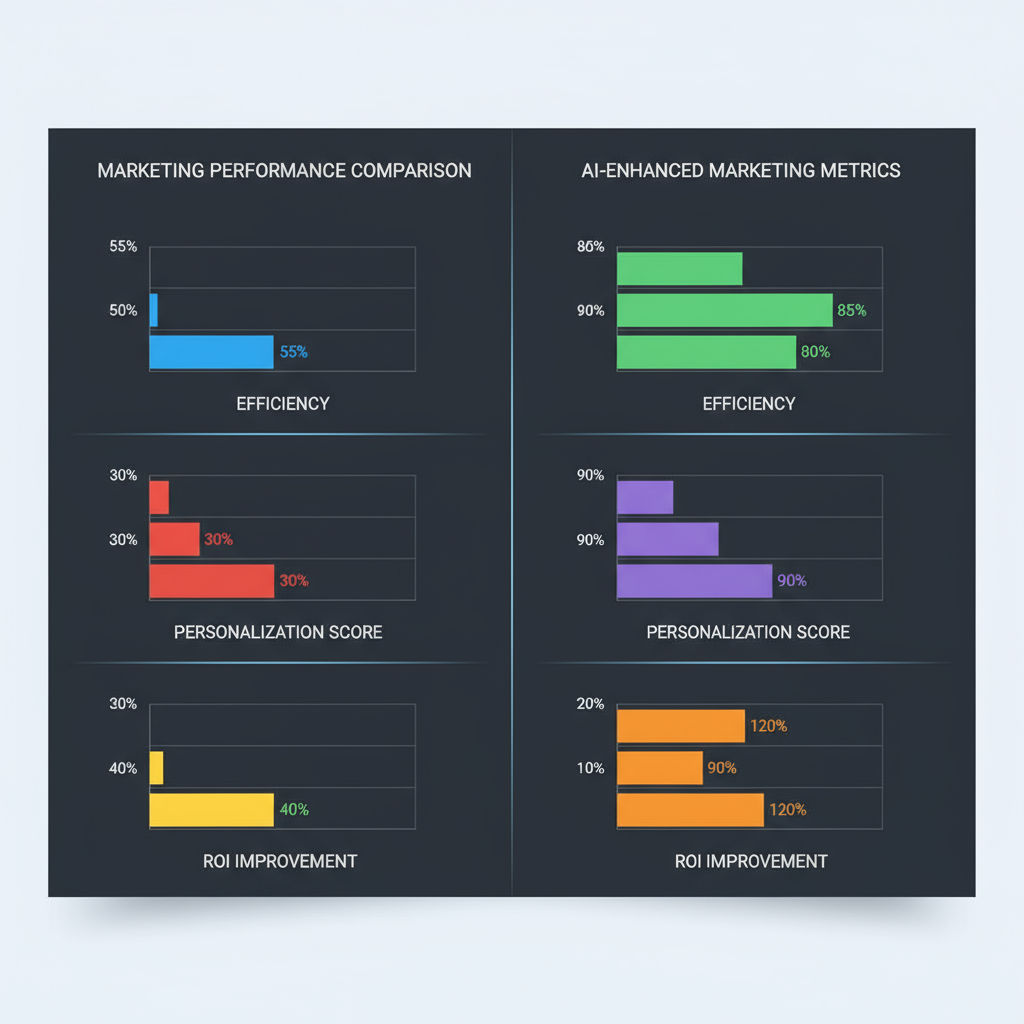
AI Reporting Capabilities
- Attribution Modeling: Pinpoint the channels delivering the most value.
- Anomaly Detection: Identify irregular performance changes quickly.
- Forecast Analysis: Predict campaign results and adjust in real time.
This continuous feedback loop allows for intelligent optimization of ongoing and future campaigns.
---
Ethical Considerations and Avoiding AI Bias
AI’s potential comes with responsibility. Algorithmic bias can undermine trust and create reputational or legal issues.
Best Practices
- Diverse Data Sets: Train AI on balanced, representative datasets.
- Regular Auditing: Evaluate and fine-tune algorithms frequently.
- Transparency: Disclose AI interactions to your audience.
Ethical AI usage strengthens brand trust while ensuring compliance with regulations.
---
Future Trends in AI Media Strategies
The AI landscape is evolving rapidly, bringing new opportunities for media and marketing innovation.
Trends to Watch
- Generative AI Collaborations: Merging human creativity with AI’s speed.
- Hyper-Personalization: Delivering content tailored to each individual.
- Voice Search Optimization: Preparing for AI-driven voice and conversational searches.
- AR Campaigns: Leveraging AI-powered augmented reality for immersive experiences.
The most effective AI media strategies will blend automation with human oversight, ensuring technology complements creative vision.
---
Conclusion
A robust AI media strategy integrates technology, analytics, and creativity to produce campaigns that resonate deeply with audiences. By harnessing AI for data-driven insights, personalized content creation, optimized advertising, and real-time engagement, brands can stay ahead in an increasingly competitive digital space. The future belongs to marketers who not only adopt AI tools but embed them into their strategic foundation—ethically, intelligently, and with a clear vision for tomorrow.
Ready to elevate your marketing game? Explore AI-powered tools and start building a strategy that delivers measurable results today.


